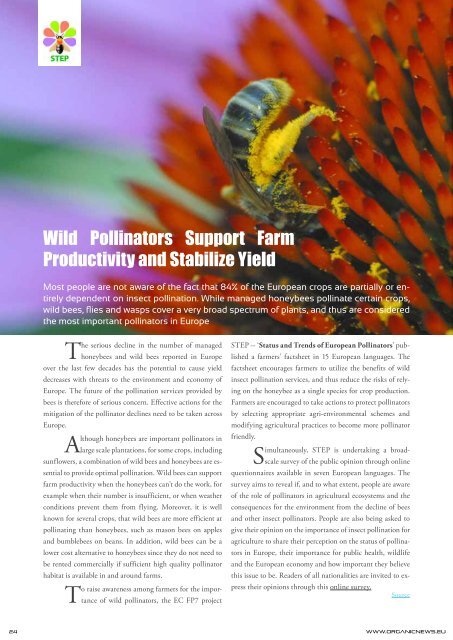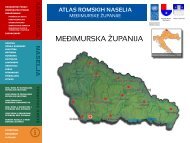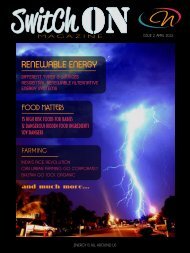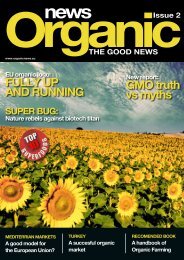Organic News 3
Organic News magazine issue 3
Organic News magazine issue 3
Create successful ePaper yourself
Turn your PDF publications into a flip-book with our unique Google optimized e-Paper software.
Wild Pollinators Support Farm<br />
Productivity and Stabilize Yield<br />
Most people are not aware of the fact that 84% of the European crops are partially or entirely<br />
dependent on insect pollination. While managed honeybees pollinate certain crops,<br />
wild bees, flies and wasps cover a very broad spectrum of plants, and thus are considered<br />
the most important pollinators in Europe<br />
The serious decline in the number of managed<br />
honeybees and wild bees reported in Europe<br />
over the last few decades has the potential to cause yield<br />
decreases with threats to the environment and economy of<br />
Europe. The future of the pollination services provided by<br />
bees is therefore of serious concern. Effective actions for the<br />
mitigation of the pollinator declines need to be taken across<br />
Europe.<br />
Although honeybees are important pollinators in<br />
large scale plantations, for some crops, including<br />
sunflowers, a combination of wild bees and honeybees are essential<br />
to provide optimal pollination. Wild bees can support<br />
farm productivity when the honeybees can’t do the work, for<br />
example when their number is insufficient, or when weather<br />
conditions prevent them from flying. Moreover, it is well<br />
known for several crops, that wild bees are more efficient at<br />
pollinating than honeybees, such as mason bees on apples<br />
and bumblebees on beans. In addition, wild bees can be a<br />
lower cost alternative to honeybees since they do not need to<br />
be rented commercially if sufficient high quality pollinator<br />
habitat is available in and around farms.<br />
To raise awareness among farmers for the importance<br />
of wild pollinators, the EC FP7 project<br />
STEP -- ‘Status and Trends of European Pollinators’ published<br />
a farmers’ factsheet in 15 European languages. The<br />
factsheet encourages farmers to utilize the benefits of wild<br />
insect pollination services, and thus reduce the risks of relying<br />
on the honeybee as a single species for crop production.<br />
Farmers are encouraged to take actions to protect pollinators<br />
by selecting appropriate agri-environmental schemes and<br />
modifying agricultural practices to become more pollinator<br />
friendly.<br />
Simultaneously, STEP is undertaking a broadscale<br />
survey of the public opinion through online<br />
questionnaires available in seven European languages. The<br />
survey aims to reveal if, and to what extent, people are aware<br />
of the role of pollinators in agricultural ecosystems and the<br />
consequences for the environment from the decline of bees<br />
and other insect pollinators. People are also being asked to<br />
give their opinion on the importance of insect pollination for<br />
agriculture to share their perception on the status of pollinators<br />
in Europe, their importance for public health, wildlife<br />
and the European economy and how important they believe<br />
this issue to be. Readers of all nationalities are invited to express<br />
their opinions through this online survey.<br />
Source<br />
24<br />
WWW.ORGANICNEWS.EU






